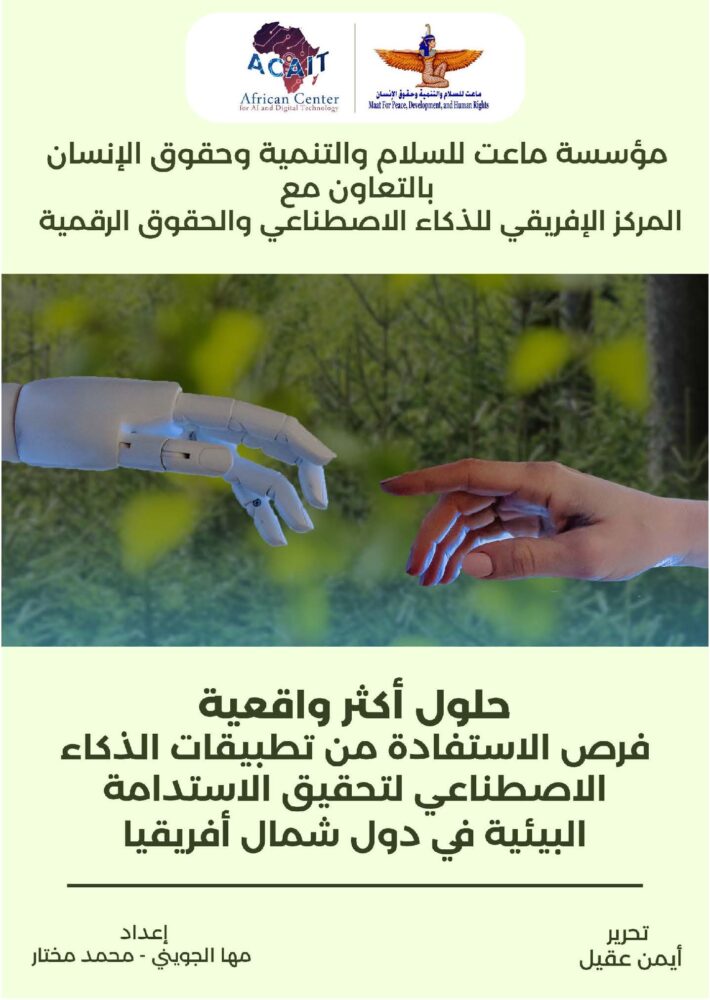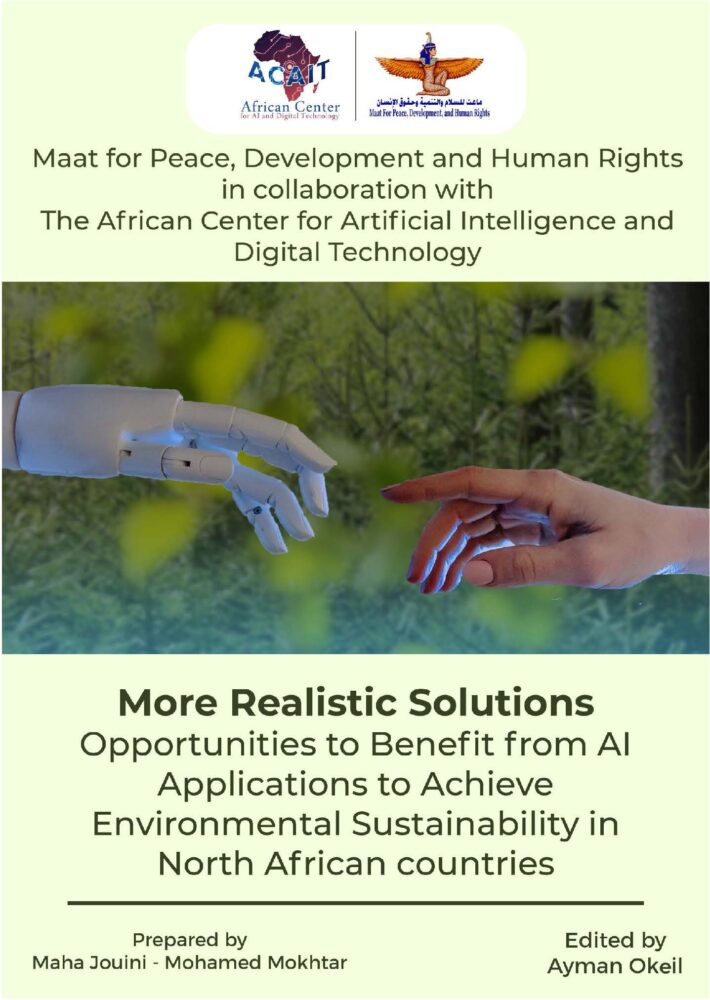Okeil: Environmental crises represent an existential threat to North African citizens, and artificial intelligence (AI) applications may have the solutions
Jouini: All different parties must cooperate to manage and adapt climate change risks
Mukhtar: North African countries should exchange experiences in the field of artificial intelligence to enhance environmental sustainability
June 5, every year is celebrated as World Environment Day (WED). Therefore, there probably won't be a better occasion than this day to reflect on the progress made to enhance biodiversity, provide clean water and air, in addition to combating the impact of climate change resulting from global warming, given its severe impacts and dire consequences that threaten basic human rights. As such, Maat for Peace, Development and Human Rights, in cooperation with the African Center for Artificial Intelligence and Digital Technology (ACAIT) is taking this opportunity to shed light on the potential opportunities of using artificial intelligence applications to achieve environmental sustainability in North African countries, by issuing a study showing and discussing environmental problems in North Africa. The study also reviewed some of the successful efforts made across the world in the use of artificial intelligence to enhance environmental sustainability and tried to get some insights that could help change the current environmental situation in North African countries.
In this context, Ayman Okeil, an international human rights expert and president of Maat, expressed his deep concern about the outbreak of environmental crises in the North African region, explaining that they pose an existential threat to all citizens there, in addition to jeopardizing the realization of all human rights for present and future generations. Undoubtedly, the applications of artificial intelligence can be one of the solutions to solve major global environmental crises, as artificial intelligence and digital technology could bring a 10-20% reduction in global carbon dioxide emissions by 2030, which, in turn, would positively impact the recovery of the environment in the future. Okeil also called many North African countries to try to benefit from international experiences that have used artificial intelligence applications to combat climate disasters.
For her part, Maha Jouini, CEO of the African Center for AI and Digital Technology, said that North African countries have a historic opportunity to rely on artificial intelligence techniques and local competencies to find solutions to the climate change dilemma, which is now threatening food security and affecting the facilities necessary for life. The joint report prepared by Maat and the African Center aims to highlight the solutions available for these countries and emphasizes the need for cooperation between all the different parties to manage and adapt to climate change risks, Jouini added.
In this regard, Muhammad Mukhtar, a researcher at Maat, added that there are several challenges restricting reliance on artificial intelligence applications to combat environmental disasters in the North African region, topped by the need for funding necessary to be invested in artificial intelligence applications related to environmental sustainability, let alone the ongoing threats posed by internal conflicts and terrorism. Mukhtar, therefore, called for the need to strengthen cooperation between North African countries in the exchange of researches and studies related to enhancing artificial intelligence in combating environmental disasters.

 |
 |











